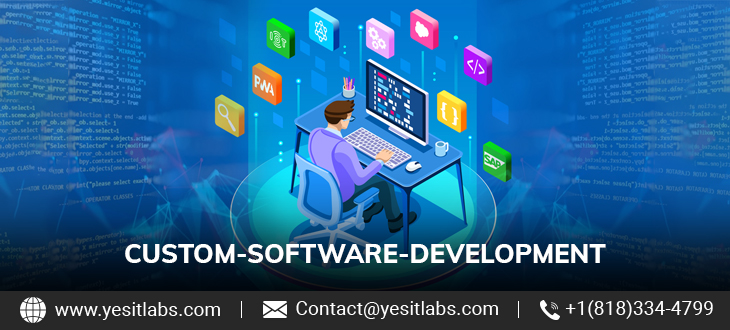
 By Sabela Carson
By Sabela Carson Minimal Viable Product (MVP): The Art of Efficient Software Development
In the fast-paced world of software development, speed and efficiency are crucial for staying ahead of the competition. One of the most effective strategies to achieve this is by employing the concept of a Minimal Viable Product (MVP). This approach emphasizes launching a product with only the essential features needed to satisfy early adopters while collecting feedback to guide future development.
What is an MVP?
An MVP is the most stripped-down version of a product that delivers enough value to attract early users and validate core assumptions about the product idea. The concept was first popularized by Eric Ries in his book “The Lean Startup“. The main objective of an MVP is to build a minimum viable product that allows you to enter the market quickly with minimal resources, enabling you to validate your idea, test its viability, and gather actionable feedback to iterate on future versions.
Benefits of an MVP
- Cost Efficiency: Developing a fully-featured product can be time-consuming and expensive. By focusing on a basic version, an MVP allows companies to test their concept without heavy financial and time commitments. This means you avoid building features that might not be necessary, saving both time and money.
- User-Centric Development: MVPs enable developers to gather real user feedback early in the development cycle. This direct feedback helps in refining the product according to actual user needs and preferences, instead of making assumptions about what users want.
- Risk Mitigation: A common risk in software development is investing significant resources in a product that ultimately fails in the market. MVPs minimize this risk by allowing companies to pivot, adjust, or even abandon a product idea based on early reactions—before spending extensive time or money on further development.
- Market Validation: MVPs provide an opportunity to validate market demand for a product. They allow companies to test core hypotheses about the product, market fit, and scalability based on real-world data from actual users.
- Faster Time-to-Market: Speed is a key factor in software development, especially in industries where first-mover advantage is critical. An MVP approach allows you to deliver a solution to users faster, often securing market position while still working on improvements.
Steps to Build an MVP
- Market Research: Start by deeply understanding the target audience, their pain points, and existing solutions in the market. This step is critical because identifying an unmet need or a unique value proposition will set your MVP apart from competitors.
- Define Core Features: Narrow down your product’s feature set to only the most essential aspects that solve the core user problem. This avoids feature bloat and ensures that the MVP remains simple and easy to use, while still delivering value.
- Build the MVP: Focus on developing a high-quality, functional version with just the core features. It’s important that the MVP is not just a prototype, but a usable product that delivers value, even if it lacks the bells and whistles of a complete solution.
- Launch and Test: Release your MVP to a target group of early adopters or beta users. Use analytics and performance metrics to track how users interact with your product. In addition to data, direct user feedback should be gathered through surveys, interviews, and support channels.
- Iterate and Improve: Use the insights gained from testing and feedback to drive future iterations. This involves refining existing features, fixing bugs, and gradually adding more functionality as needed. A custom software development company can help facilitate this process by tailoring the MVP according to evolving business and market needs.
Additional Expert Tips for Building a Successful MVP
- Prioritize Scalability: Even though an MVP is a basic version, it’s essential to lay a foundation that can scale. This means building with flexible architecture and using modern development practices that won’t require extensive rework as the product grows.
- Avoid Technical Debt: While the temptation to cut corners in the MVP phase is strong, avoid accruing too much technical debt. Make sure the MVP code is maintainable, as poor quality early on can slow down future iterations.
- Test for Stability: While you may be focusing on minimum features, the MVP should still be stable. Bugs and crashes can turn away early adopters and ruin your opportunity for useful feedback.
- Consider Future Integration: When planning your MVP, think ahead to how it will integrate with other tools, systems, or platforms. For example, if the product will need to sync with third-party services, plan for those integrations in the future roadmap.
Real-World Examples of MVP Success
- Dropbox: Dropbox famously validated its product idea through a simple video that demonstrated the core functionality of file sharing and syncing. This early prototype, combined with user feedback, confirmed the need for the product and led to the development of the full platform.
- Airbnb: The founders of Airbnb began by renting out their own apartment and creating a basic website to validate the concept of peer-to-peer accommodation. This simple MVP allowed them to gather user feedback, secure funding, and grow into a global platform.
- Zappos: Before building its e-commerce platform, Zappos tested the viability of online shoe sales by posting pictures of shoes from local stores. When a customer made a purchase, they would buy the shoes locally and ship them to the customer. This helped validate the demand for online shoe shopping before investing in inventory and fulfillment.
Common Mistakes to Avoid
- Overloading Features: One of the most common mistakes is trying to pack too many features into the MVP. This dilutes the core value proposition and can lead to unnecessary complexity.
- Ignoring User Feedback: MVP success depends on gathering and acting upon user feedback. Neglecting this feedback can result in a product that fails to address the real needs of its audience.
- Failing to Track Key Metrics: It’s not enough to just launch an MVP—you need to track relevant performance metrics like user engagement, retention, and conversion rates. These metrics will provide insight into how well the product meets user needs.
- Lack of Clear Hypotheses: Every MVP should be built with specific hypotheses in mind—whether it’s about user behavior, market demand, or scalability. Without clear hypotheses, it’s hard to measure success or determine the next steps.
For entrepreneurs working with a Web developer freelancer, it’s essential to clearly communicate the project’s core requirements to ensure the MVP stays focused on solving the primary user problem, without unnecessary additional features.
Conclusion
The MVP approach is a strategic and efficient method for developing software products. By focusing on core features, gathering user feedback, and iterating based on real-world data, companies can build products that meet user needs while saving time and resources. This lean development model fosters innovation, reduces risk, and accelerates time-to-market, making it a key tool in today’s competitive landscape.
Tags: build a minimum viable product, custom software development agency, custom software development company, custom software development company in usa, custom software development company usa, custom software development services usa, custom software development usa, hire freelance web developer, hire web developer in USA, hire website developer, hire website developer in USA, minimum viable product software development, mvp for software development, mvp in software development, mvp software development, software development mvp, web developer for hire, Web developer freelancer, Web developer freelancers, what is mvp in software developmentLatest Resources
Top Frameworks for Cross-Platform App Development in 2025
January 22, 2025
A Guide to Types of Artificial Intelligence (AI)
January 14, 2025
Key Benefits of React Native App Development
January 7, 2025
Leveraging AI in Startup Software Development: Trends and Tips
December 30, 2024
Mobile Optimization for Shopify Apps: Best Practices
December 23, 2024













 Services
Services

